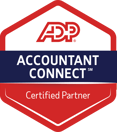Bookkeeping for Real Estate Brokers
Jay Mims
7/12/20241 min read
Bookkeeping for real estate brokers involves managing financial transactions related to sales, commissions, expenses, and operational costs. Here's a structured approach to handle bookkeeping effectively for real estate brokers:
Separate Business and Personal Finances: Open a dedicated business bank account for all transactions related to your real estate brokerage. This helps in tracking income and expenses accurately separate from any personal expenses.
Track Commission Income: Record all commission income received from real estate transactions. Include details such as transaction dates, property addresses, sales prices, and commission rates.
Expense Tracking: Keep detailed records of all business expenses, including office rent, utilities, advertising and marketing costs, professional dues, licensing fees, insurance, office supplies, and any other operational expenses.
Client Trust Accounts: When handling client funds (such as earnest money deposits), maintain separate trust accounts as required by law. Keep meticulous records of all transactions related to client funds.
Transaction Records: Maintain transaction files for each real estate deal, including contracts, agreements, disclosures, and any correspondence with clients or other parties involved in the transaction.
Accounting Software: Utilize accounting software like QuickBooks or specialized real estate brokerage management software. These tools can help automate transaction recording, track income and expenses, generate financial reports, and streamline tax preparation.
Reconciliation: Regularly reconcile bank statements, client trust accounts, and credit card statements with your accounting records to ensure accuracy and identify any discrepancies promptly.
Tax Compliance: Stay updated on tax regulations applicable to real estate brokers, including deductions for business expenses, commission income reporting, and any relevant tax credits. Consider working with a tax professional specializing in real estate.
Financial Reporting: Generate regular financial statements such as income statements (profit and loss), balance sheets, and cash flow statements. These reports provide insights into your brokerage's financial performance and help in making informed business decisions.
Document Retention: Keep all financial documents, transaction records, contracts, client communications, and receipts organized and easily accessible for auditing purposes and future reference.
Continuing Education: Stay informed about industry trends, regulatory changes, and best practices in real estate brokerage accounting and management.
By implementing these practices, real estate brokers can effectively manage their finances, ensure compliance with regulatory requirements, optimize tax strategies, and maintain transparency in their business operations.

Credentials
CPA # 44657
QuickBooks Pro Advisor
Schedule a meeting
386-846-9140
jay@integralcpa.com
128 Orange Ave
Daytona Beach, FL 32114
© 2025. All rights reserved.






